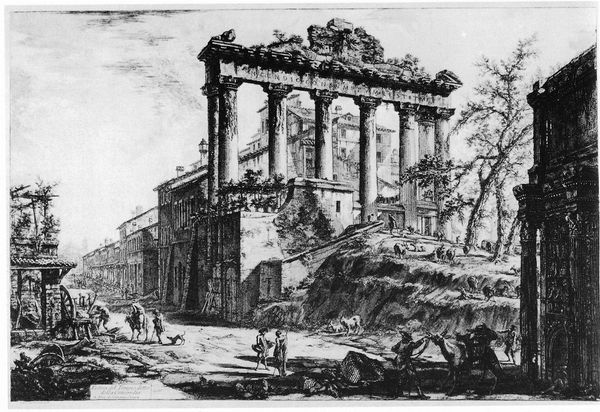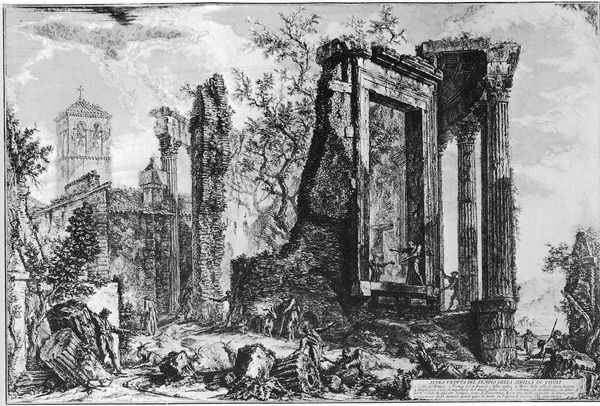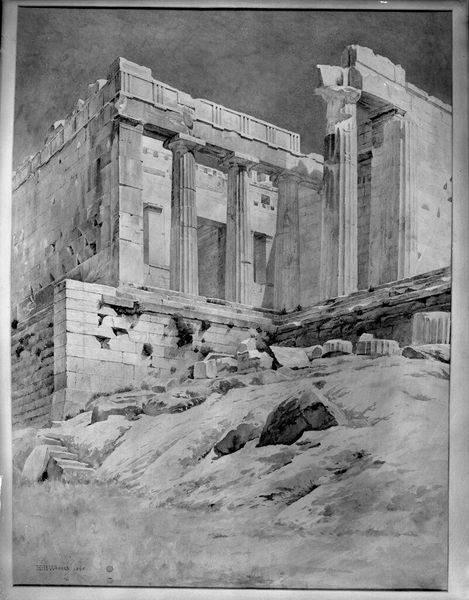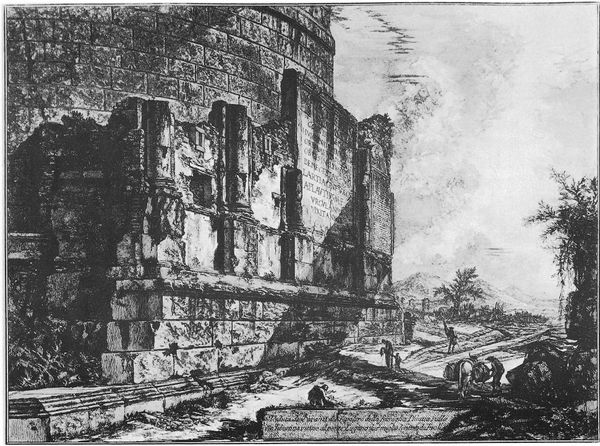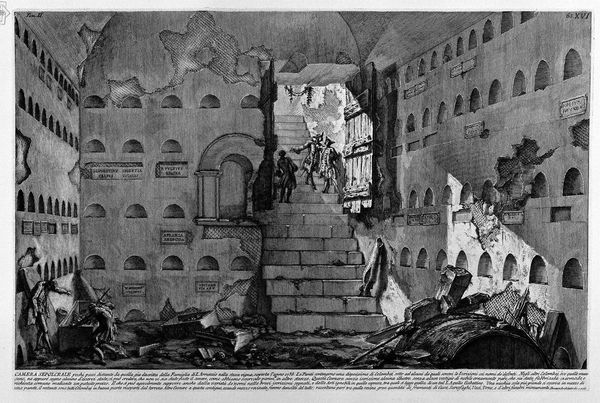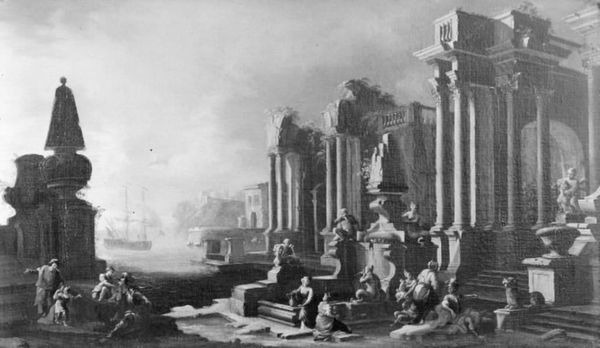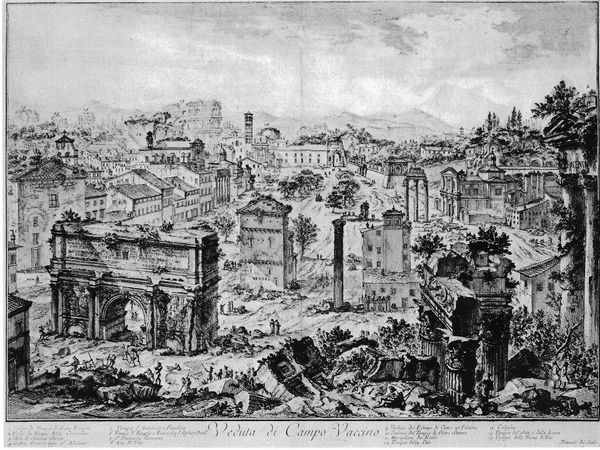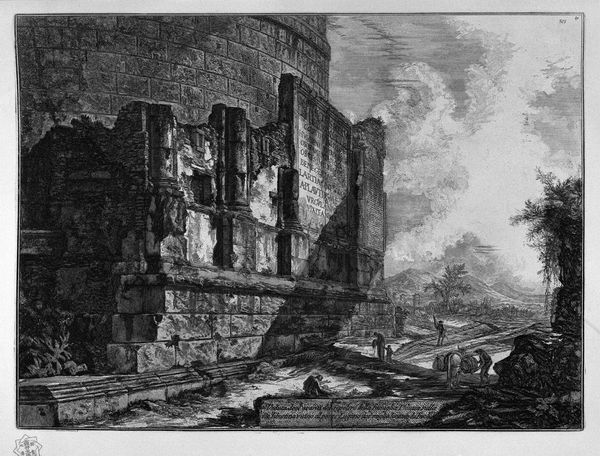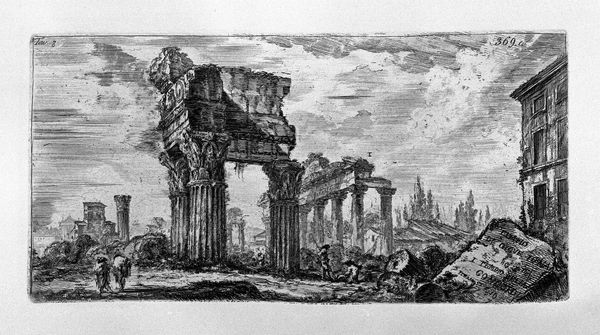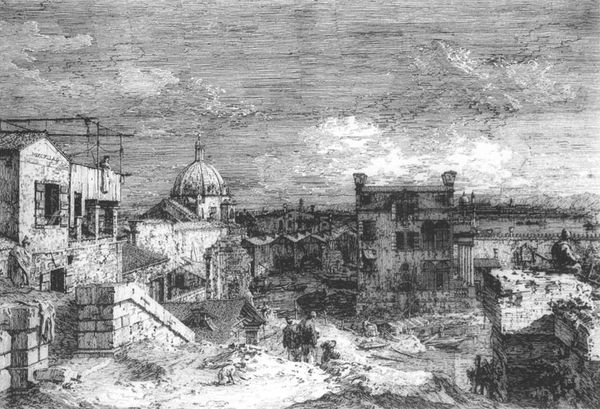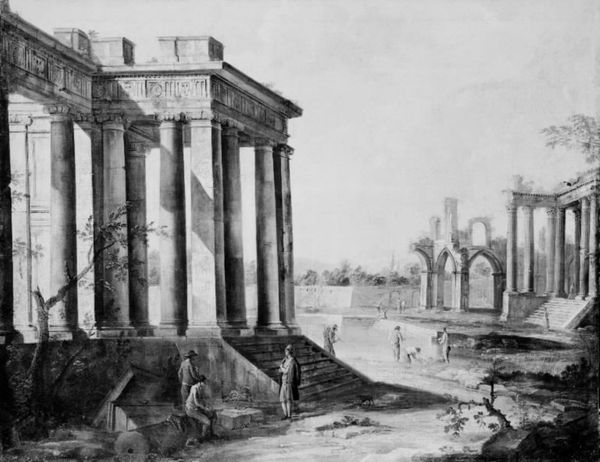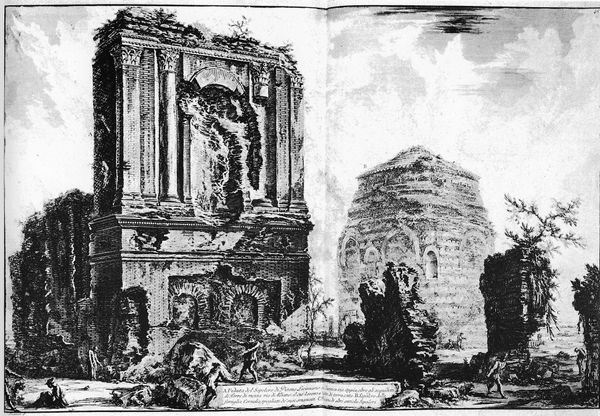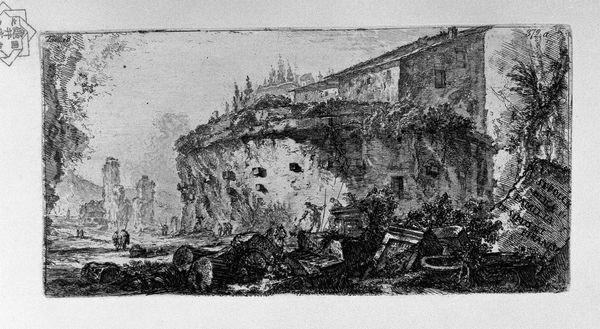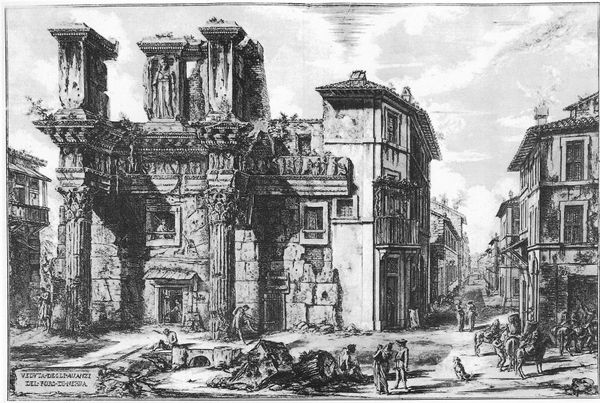
drawing, pencil, architecture
#
drawing
#
pencil sketch
#
greek-and-roman-art
#
landscape
#
geometric
#
ancient-mediterranean
#
column
#
pencil
#
architectural section drawing
#
architectural drawing
#
architecture drawing
#
architecture
Copyright: Public domain
Editor: So, here we have Konstantin Bogaevsky's 1909 pencil drawing, "View of the Ancient Greek Acropolis." There's something stark and fragmented about it. What catches your eye when you look at it? Curator: Well, I am drawn to the medium itself, the pencil, and the way it’s used. Think about what a pencil is: graphite mined and processed, wood carefully shaped, then applied to paper, also manufactured. This drawing, it's not just a representation of a classical site, but the endpoint of multiple industrial processes. Editor: That's a different take! I was focused on the ruins themselves, the subject of the image. Curator: The "ruins" are central, but let's think about them as material too, products of human labor. They weren’t always ruins. What was the social structure that enabled the quarrying of marble, the carving of those columns? How were the raw materials transported, assembled? Editor: So you’re less interested in the romantic ideal of Ancient Greece and more in the labor behind the aesthetic? Curator: Precisely! And also in Bogaevsky's labor. What did it mean to *draw* these ruins in 1909, in the shadow of industrialization? Was it a yearning for a pre-industrial past, or a commentary on the relationship between past labor and present modes of production? Editor: It's fascinating to think about the layers of production involved – from the ancient construction to the creation of the artwork itself. I see the drawing, but I never thought about it being made of materials, processes. Curator: Exactly. And that perspective shifts our understanding, doesn't it? It encourages us to see art not as some ethereal creation, but as the result of concrete material conditions and human effort across time.
Comments
No comments
Be the first to comment and join the conversation on the ultimate creative platform.
